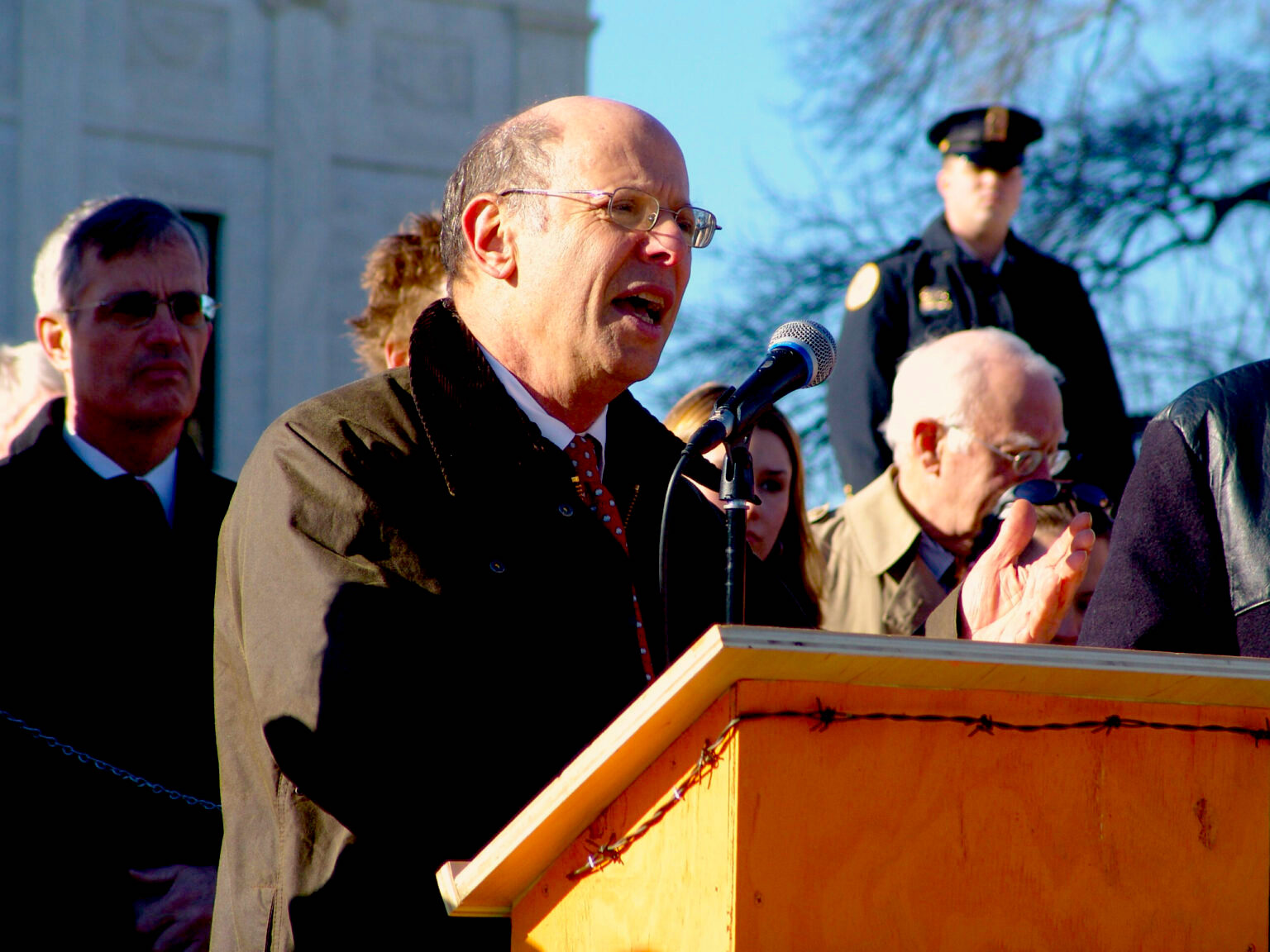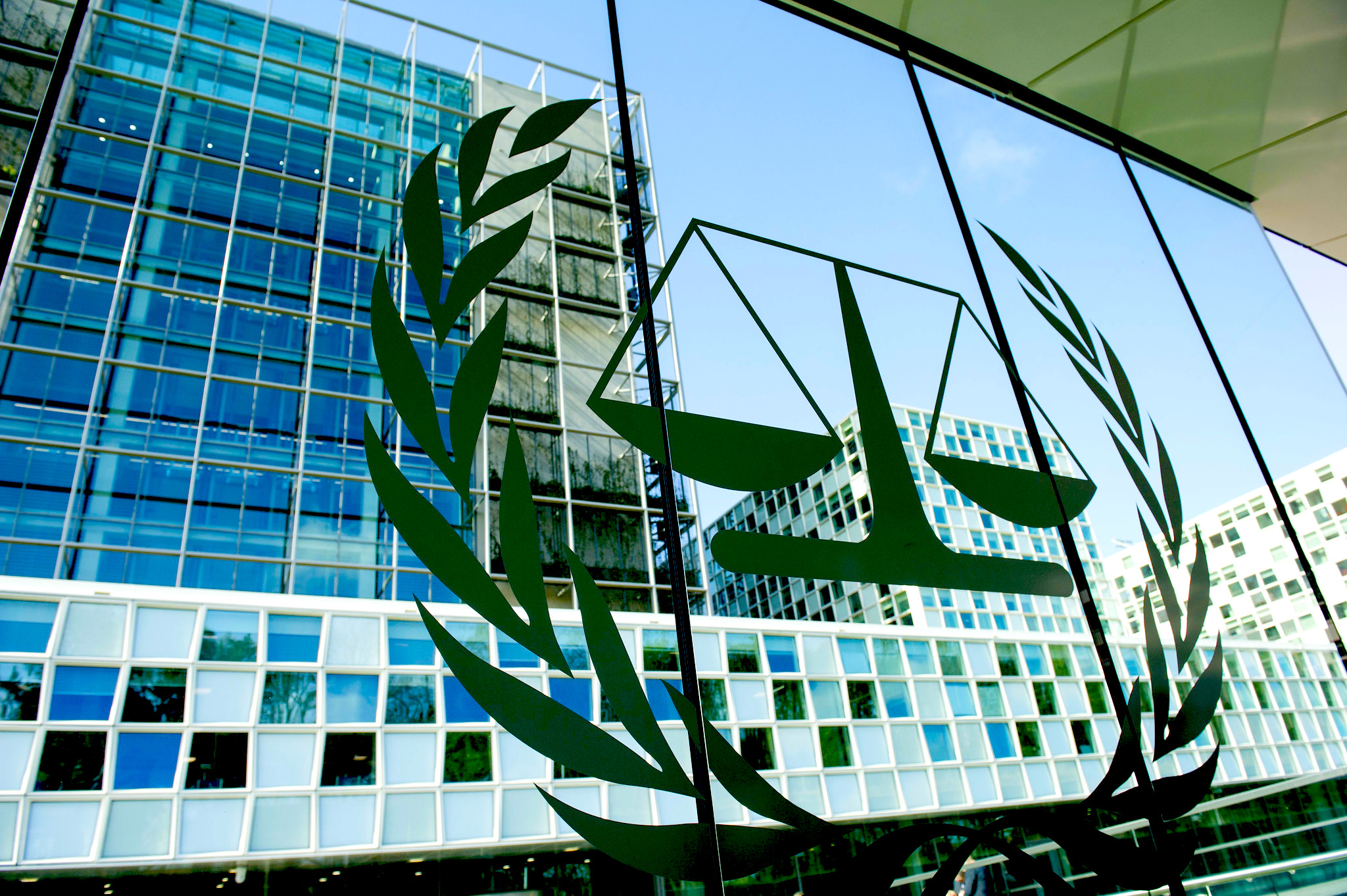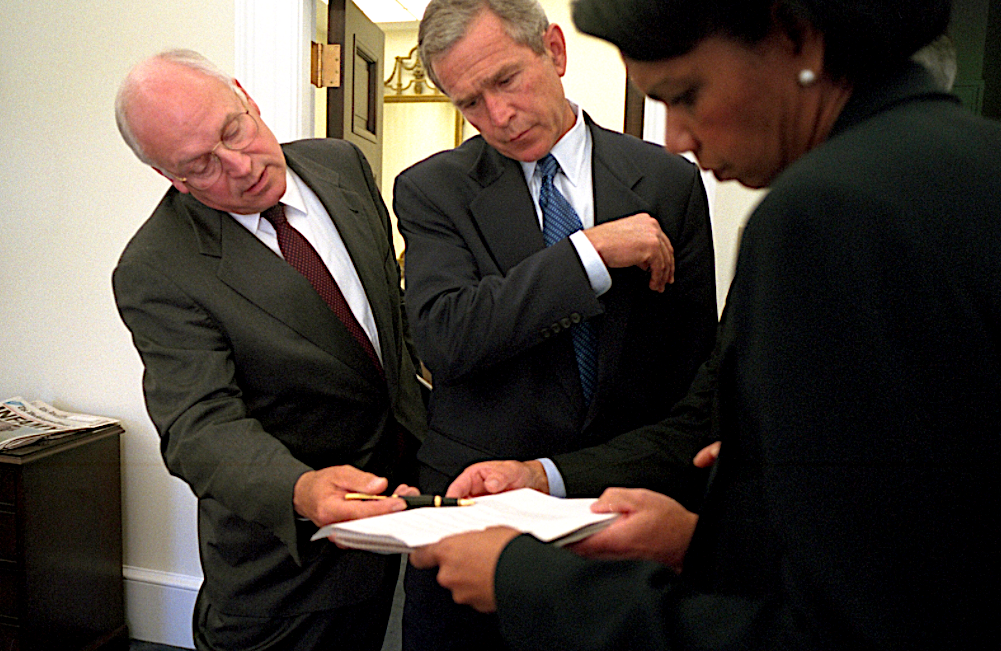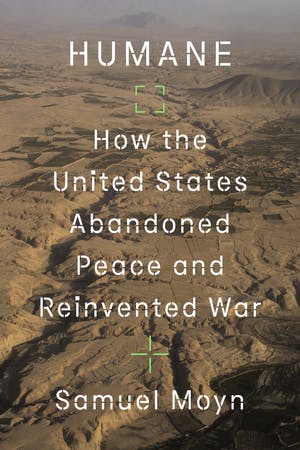Marjorie Cohn defends the legacy of Michael Ratner from an attack by Yale law professor Samuel Moyn.

Michael Ratner in 2006. (Jonathan McIntosh, CC BY 2.5, Wikimedia Commons)
 Prof. Samuel Moyn’s vicious and unprincipled attack on Michael Ratner, one of the finest human rights attorneys of our time, was published in The New York Review of Books (NYRB) on Sept 1. Moyn singles out Ratner as a whipping boy to support his own bizarre theory that punishing war crimes prolongs war by making it more palatable. He disingenuously claims that enforcing the Geneva Conventions and opposing illegal wars are mutually exclusive. As Dexter Filkins noted in The New Yorker, Moyn’s “logic would favor incinerating entire cities, Tokyo style, if the resulting spectacles of agony lead more people to oppose American power.”
Prof. Samuel Moyn’s vicious and unprincipled attack on Michael Ratner, one of the finest human rights attorneys of our time, was published in The New York Review of Books (NYRB) on Sept 1. Moyn singles out Ratner as a whipping boy to support his own bizarre theory that punishing war crimes prolongs war by making it more palatable. He disingenuously claims that enforcing the Geneva Conventions and opposing illegal wars are mutually exclusive. As Dexter Filkins noted in The New Yorker, Moyn’s “logic would favor incinerating entire cities, Tokyo style, if the resulting spectacles of agony lead more people to oppose American power.”
Moyn takes Ratner — the long-time president of the Center for Constitutional Rights (CCR) who died in 2016 — to task for filing Rasul v. Bush to give people indefinitely detained at Guantánamo the constitutional right to habeas corpus to challenge their detention. Moyn would have us turn our backs on people who are tortured, massacred and locked up indefinitely. He apparently agrees with the preposterous claim of George W. Bush’s first attorney general, Alberto Gonzales, (who facilitated the U.S. torture program) that the Geneva Conventions — which classify torture as a war crime — were “quaint” and “obsolete.”
In his polemic, Moyn makes the false and astounding claim that “no one, perhaps has done more than [Ratner] to enable a novel, sanitized version of permanent war.” Without a shred of evidence, Moyn callously alleges that Ratner “laundered the inhumanity” of “war that thus became endless, legal, and humane.” Moyn has apparently never visited Guantánamo, which many have called a concentration camp, where prisoners were ruthlessly tortured and held for years without charges. Although former President Barack Obama ended Bush’s torture program, prisoners at Guantánamo were violently force-fed on Obama’s watch, which constitutes torture.
The Supreme Court agreed with Ratner, Joseph Margulies and CCR in Rasul. Margulies, who was lead counsel in the case, told me that Rasul “doesn’t humanize [the war on terror], nor does it rationalize or legalize it. To put it differently, even if we had never filed, fought, and won Rasul, the country would still be in the exact same, endless war.” Furthermore, as Ratner wrote in his autobiography, Moving the Bar: My Life as a Radical Lawyer, The New York Times called Rasul “the most important civil rights case in 50 years.”
Please Support Our Fall Fund Drive!
It is the advent of drone warfare, not the legal work of Ratner, Margulies and CCR, that has “sanitized” the war on terror. The development of drones has nothing to do with their litigation and everything to do with enriching defense contractors and protecting pilots from harm so Americans don’t have to see body bags. Even so, drone “pilots” suffer from PTSD, while killing an inordinate number of civilians in the process.
“Moyn seems to think opposing war and opposing torture in war are at odds. Ratner is in fact Exhibit A that they are not. He opposed both to the end,” ACLU legal director David Cole tweeted.
3/3 And let's suppose for a minute that allowing torture to continue would contribute to ending the war. Are lawyers supposed to look the other way, to sacrifice their clients in the quixotic hope that allowing them to be tortured will accelerate the end of the war?
— David Cole (@DavidColeACLU) September 5, 2021
Indeed, Ratner was a long-time opponent of illegal U.S. wars. He attempted to enforce the War Powers Resolution in 1982 after former President Ronald Reagan sent “military advisers” to El Salvador. Ratner sued former President George H.W. Bush (unsuccessfully) to require congressional authorization for the first Gulf War. In 1991, Ratner organized a war crimes tribunal and condemned U.S. aggression, which the Nuremberg Tribunal called “the supreme international crime.”
Condemned NATO’S Kosovo Bombing
In 1999, he condemned the U.S.-led NATO bombing of Kosovo as “a crime of aggression.” In 2001, Ratner and University of Pittsburgh law professor Jules Lobel wrote in Jurist that Bush’s war plan in Afghanistan violated international law. Shortly thereafter, Ratner told a meeting of the National Lawyers Guild (of which he was a past president) that the 9/11 attacks were not acts of war but rather crimes against humanity.
In 2002, Ratner and his colleagues at CCR wrote in The New York Times that the “prohibition on aggression constitutes a fundamental norm of international law and can be violated by no nation.” In 2006, Ratner gave the keynote address at an international commission of inquiry on the Bush administration’s crimes against humanity and war crimes, including the illegality of the Iraq war.
In 2007, Ratner wrote in a testimonial for my book, Cowboy Republic: Six Ways the Bush Gang Has Defied the Law, “From an illegal aggressive war in Iraq to torture, here it all is — the six major ways the Bush administration has made America an outlaw state.”
Like Ratner, Canadian law professor Michael Mandel thought the Kosovo bombing spelled the death knell for enforcement of the United Nations Charter’s proscription of the use of military force unless conducted in self-defense or sanctioned by the Security Council. The Charter defines aggression as “the use of armed force by a State against the sovereignty, territorial integrity or political independence of another State, or in any other manner inconsistent with the Charter of the United Nations.”
In his book, How America Gets Away with Murder: Illegal Wars, Collateral Damage and Crimes against Humanity, Mandel argues that the NATO Kosovo bombing set the precedent for the U.S. wars in Iraq and Afghanistan. “It broke a fundamental legal and psychological barrier,” Mandel wrote. “When Pentagon guru Richard Perle ‘thanked God’ for the death of the UN, the first precedent he could cite in justification of overthrowing the Security Council’s legal supremacy in matters of war and peace was Kosovo.”
Moyn, a Yale law professor who purports to be an expert on legal strategy, has never practiced law. Perhaps that is why he mentions the International Criminal Court (ICC) only once in his book, Humane: How the United States Abandoned Peace and Reinvented War. In that single reference, Moyn falsely states that the ICC doesn’t target wars of aggression, writing, “[The ICC] fulfilled the legacy of Nuremberg, except in omitting its signature accomplishment of criminalizing illegal war itself.”
The Crime of Aggression

The International Criminal Court in The Hague, Netherlands. (UN Photo, Flickr)
If Moyn had read the Rome Statute which established the ICC, he would see that one of the four crimes punished under the statute is the crime of aggression, which is defined as “the planning, preparation, initiation or execution, by a person in a position effectively to exercise control over or to direct the political or military action of a State, of an act of aggression which, by its character, gravity and scale, constitutes a manifest violation of the Charter of the United Nations.”
But the ICC couldn’t prosecute the crime of aggression when Ratner was still alive because the aggression amendments didn’t come into force until 2018, two years after Ratner died. Moreover, neither Iraq, Afghanistan nor the United States have ratified the amendments, making it impossible to punish aggression unless the UN Security Council so directs. With the U.S. veto on the Council, that will not happen.
Margulies said that “only a critic who has never represented a client could suggest that it would’ve been better to file litigation that had no remote chance of success instead of trying to prevent a prisoner’s lawless and inhumane detention. The very suggestion is insulting, and Michael understood that better than anyone.”
In fact, three cases filed by other lawyers that challenged the legality of the Iraq war were thrown out of court by three federal courts of appeals.
-The First Circuit ruled in 2003 that active-duty members of the U.S. military and members of Congress had no “standing” to object to the legality of the war before it started, because any harm to them would be speculative.
-In 2010, the Third Circuit found that New Jersey Peace Action, two mothers of children who had completed multiple tours of duty in Iraq and an Iraq war veteran had no “standing” to contest the war’s lawfulness because they couldn’t show they had been personally harmed.
-And in 2017, the Ninth Circuit held in a case filed by an Iraqi woman that defendants George W. Bush, Dick Cheney, Colin Powell, Condoleezza Rice and Donald Rumsfeld had immunity from civil lawsuits.

Sept. 12, 2001: President George W. Bush, center, with Vice President Dick Cheney and National Security Advisor Condoleezza Rice looking over a brief together in the White House. (U.S. National Archives)
Margulies also told me, “the implication that Rasul somehow enabled the forever wars is simply incorrect. Because of the war in Afghanistan, the first phase of the war on terror was fought on the ground, which predictably led the U.S. to capture and interrogate a great many prisoners. But this phase of the war has long since been supplanted by an aspiration to what the NSA calls ‘information dominance.’”
Margulies added, “More than anything, the war on terror is now a war of continuous, global surveillance followed episodically by drone strikes. It is a war about signals more than soldiers. Nothing in Rasul, or any of the detention litigation, has the slightest effect on this new phase.”
“And why would anyone think that had torture continued, the war on terror would have come to a halt? That’s Moyn’s premise, for which he offers not a scintilla of evidence,” Cole, a former CCR staff attorney, tweeted. “To say it’s deeply implausible is an understatement. And let’s suppose for a minute that allowing torture to continue would contribute to ending the war. Are lawyers supposed to look the other way, to sacrifice their clients in the quixotic hope that allowing them to be tortured will accelerate the end of the war?”
 In Moyn’s book titled Humane, he sardonically takes Ratner and his CCR colleagues to task for “editing war crimes out of your wars.” Throughout his NYRB screed, Moyn contradicts himself in an attempt to support his sketchy narrative, alternately maintaining that Ratner wanted to humanize war and Ratner didn’t want to humanize war (“Ratner’s objective was never really to make American war more humane”).
In Moyn’s book titled Humane, he sardonically takes Ratner and his CCR colleagues to task for “editing war crimes out of your wars.” Throughout his NYRB screed, Moyn contradicts himself in an attempt to support his sketchy narrative, alternately maintaining that Ratner wanted to humanize war and Ratner didn’t want to humanize war (“Ratner’s objective was never really to make American war more humane”).
Bill Goodman was CCR’s legal director on 9/11. “Our options were to devise legal strategies that challenged kidnappings, detentions, tortures, and murders by the U.S. military that followed 9/11 or to do nothing,” he told me. “Even if the litigation failed — and it was a very difficult strategy — it could at least serve the purpose of publicizing these outrages. To do nothing was to acknowledge that democracy and the law were helpless in the face of unconstrained exercise of malignant power,” Goodman said. “Under Michael’s leadership we chose to act rather than to falter. I have no regrets. Moyn’s approach — to do nothing — is unacceptable.”
Moyn makes the ludicrous claim that Ratner’s goal, like that of “some conservatives,” was to “place the war on terror on a solid legal foundation.” On the contrary, Ratner wrote in his chapter published in my book, The United States and Torture: Interrogation, Incarceration, and Abuse, “Preventive detention is a line that should never be crossed. A central aspect of human liberty that has taken centuries to win is that no person shall be imprisoned unless he or she is charged and tried.”
He continued, “If you can take away those rights and simply grab someone by the scruff of the neck and throw them into some offshore penal colony because they are non-citizen Muslims, those deprivations of rights will be employed against all. … This is the power of a police state and not a democracy.”
Lobel, who followed Ratner as president of CCR, told Democracy Now! that Ratner “never backed down from a fight against oppression, against injustice, no matter how difficult the odds, no matter how hopeless the case seemed to be.” Lobel said, “Michael was brilliant in combining legal advocacy and political advocacy. … He loved people all around the globe. He represented them, met with them, shared their misery, shared their suffering.”
Ratner spent his life fighting tirelessly for the poor and the oppressed. He sued Ronald Reagan, George H.W. Bush, Bill Clinton, Rumsfeld, the FBI and the Pentagon for their violations of law. He challenged U.S. policy in Cuba, Iraq, Haiti, Nicaragua, Guatemala, Puerto Rico and Israel/Palestine. Ratner was lead counsel for whistleblower Julian Assange, who is facing 175 years in prison for exposing U.S. war crimes in Iraq, Afghanistan and Guantánamo.
To suggest, as Moyn cynically does, that Michael Ratner has prolonged wars by enforcing the rights of the most vulnerable, is sheer nonsense. One can’t help but think that Moyn has made Ratner the target of his condemnation not only in an attempt to bolster his absurd theory, but also to sell copies of his misguided book.
Marjorie Cohn, a former criminal defense attorney, is professor emerita at Thomas Jefferson School of Law, past president of the National Lawyers Guild, and member of the bureau of the International Association of Democratic Lawyers. She has published four books about the “war on terror”: Cowboy Republic: Six Ways the Bush Gang Has Defied the Law; The United States and Torture: Interrogation, Incarceration, and Abuse; Rules of Disengagement: The Politics and Honor of Military Dissent; and Drones and Targeting Killing: Legal, Moral and Geopolitical Issues.
This article is from Jurist and reprinted with permission.
The views expressed are solely those of the author and may or may not reflect those of Consortium News.
Please Support Our
Fall Fund Drive!


Sorry, Marjorie Cohn, but it seems to me that you may have misunderstood Samuel Moyn.
When I read your piece I had not heard of Michael Ratner or Samuel Moyn. You introduced me to both.
I was ready to”share” your piece but first I wanted to learn what Samuel Moyn had said.
First I read some of Samuel Moyn’s articles and listened to Samuel Moyn’s interview in this podcast accessible at this web site:
hxxps://www DOT dissentmagazine DOT org/blog/know-your-enemy-know-your-frenemies-with-samuel-moyn
Then I read the article he wrote about Michael Ratner including the following comments Moyn wrote that share Ratner’s lifelong fight against military aggression:
“Unlike the mainstream of the human rights movement, Ratner always put peace ahead of humanity in war. One of the greatest causes in his early career was the attempt to enforce the War Powers Resolution, a 1973 act that attempted in the dying days of Vietnam to restore some congressional authority over foreign wars.”
“Like Russell, Ratner followed the priorities of Nuremberg’s indictment of Nazi leaders after World War II in condemning America’s “aggression” as its worst war crime, rather than isolating violations of humane standards during the 1991 invasion of Kuwait.”
“Ratner wholly rejected any romance of American war as an idealistic and moral tool. Breaking with many fellow progressives, he was particularly upset by the rise of “humanitarian intervention” in the 1990s, protesting the US and NATO’s illegal bombings of Kosovo in 1999, which the United Nations had never approved. Exceptions to the rule against using force were generally used as pretexts, Ratner insisted; and even if they were not, they led to abuses by less high-minded powers, once precedents were set for breaking the law in a just cause. It had been Adolf Hitler, Ratner and Lobel wrote, who most notoriously claimed “to intervene militarily in a sovereign state because of claimed human rights abuses.” Although “NATO is obviously not Hitler,” they went on, “the example illustrates the mischief caused when countries assert the right to use force on such a basis.”
“In a reflective later moment, Ratner came to the conclusion than his most agonizing failure had been his failure to destroy “the war paradigm.” This, he told Goldsmith, was “the biggest loss we’ve had.” ”
The tragedy Moyn writes about is the toll that 9/11 and the mass hysteria that followed took on Michael’s work when any anti war talk was like pissing in the wind. And all that seemed possible was focusing on the torture and the other horrors of those wars.
I thought that Moyn’s article was not a condemnation of Ratner but a tribute to Ratner’s heroism, reflecting on the tragedy that befell Ratner and his lifelong antiwar commitment that was thwarted by the storm of 9/11 and how it was used successfully by the warmongers to keep critics at bay who might otherwise have been able to challenge the imperial aggression that was the real demon in our history.
Moyn points out that Ratner himself was aware of that tragedy.
So I’ve come away from reading Moyn’s article with some understanding of Michael Ratner and his lifelong commitment to ending the wars and the tragic irony that blowback from America’s aggression had been used to stoke a mass hysteria where anti war talk was like pissing in the wind, temporarily shifting the focus to the crimes of those wars not the idea of war.
I found Moyn’s article a sympathetic tribute to Michael Ratner caught in a historic moment where his work was shunted to what was possible at that moment in history but which may have succeeded in diverting public attention away from considering the lack of justification for war itself and shunting the antiwar movement off to the side for a time.
Michael Ratner, himself, spoke of his regrets which Moyn shared.
Thank you, Marjorie Cohn, for this quintessential defense of Michael Ratner and his backbreaking attempts to stop the Bush II and following US presidents’ seamy enfless war on humanity. We rank and file Americans are totally ignorant of Ratner’s battle to preserve the integrity of international law . Noam Chomsky used the term “petty sadism” for US’ treatment against Cuba last century after their revolution. Is there even an adjective that could be applied to the sadism we’ve laid on the world since this century began?
Moyn is a coward.
I well remember Michael Ratner for years on “The Real News Network ” with Paul Jay, and his ability and compassion were constantly visible. How anyone can denigrate him and pretend to be “humane” is a mockery, but when we see Departments of “Justice” and “defense” which do the opposite we cannot be surprised.
A recent book, “Sensing Injustice” by Michael Tigar, and an earlier book “The politics of Genocide”by Edward Herman and David Peterson, both published by Monthly Review Press, enable us to see the true situation about those whose stories are “acceptable” to the public and those who are excluded or whose versions are derided as “fake news”.
Thank you Marjorie Cohn, for this marvelous put-down. And, oh my, here we go again. Add another name to that “distinguished” list of “The Best and Brightest”, those Ivy-educated (Moyn, Harvard Law, now Yale Law Professor), those from the Viet Nam era to the present, who have led us into such disasters, and who really don’t know their asses from the elbows. God save us from these elites!!!